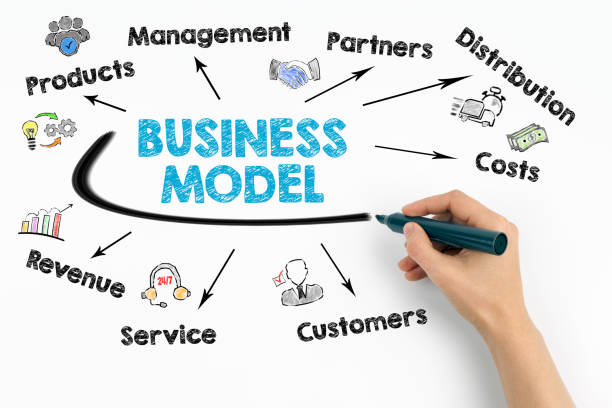Online Business Start ups
HOw: Online Business start ups
1. Conduct market research
If you’re reading this, it’s likely that you’ve already come up with an idea for your online business. However, if you’re still looking for inspiration, your first step should be to try looking for a need.
Ask family, friends, peers, and forums whether there are any services, products or content that they’d want to have the ability to access on the internet, but haven’t been able to find.
Similarly, you should think about your own experiences. Has there ever been a period where you’d searched for something online, but hadn’t come across a good enough result?
Research and test the marketplace
Before committing to investing time and money into your idea, you’ll need to know that it’s got the potential to reach your goals.
To help refine your idea and understand its potential to do well, carry out the following market research techniques:


2. Choose your online business model
Having established what your web business will likely be all about, you’re now able to think about how precisely you’re going to earn a living from it.
If you’re starting an online store or perhaps selling products, downloads or services on your site, you’ll are powered by an ecommerce business model, making earnings from sales.
If you’re starting your own ecommerce website, you could also want to look into our step-by-step guide to starting an ecommerce business.
However, if your website is to have a different purpose – for example, to provide on-site entertainment or informational resources to visitors – there are three main ways to go about monetising it:
Advertising. Businesses pay you to advertise on your site (usually via visual advertising or sponsored content). The increased traffic you attract, the greater you can charge clients. The content on such websites tends to be free for customers to gain access to.
Subscription. These sites tend to be ad-free, and instead generate income by getting the customer pay a one-off charge or a consistent subscription fee in order to access the online service or website’s content.
Fremium. This business model involves giving the customer usage of a basic version of your online service for free, but asking that they purchase additional premium features and privileges.
The model that works best for you will be based upon what your online business is doing, and what you aim to achieve with it – though you can, of course, base your site around a combo of these.
3. Build your unique website
While you might imagine this to be a massive technological undertaking, building a website can actually be pretty simple.
Plus, it’s unlikely to break the bank – domain names have a tendency to cost less than £10 per year, while many website builders can be paid for with manageable monthly subscriptions. There are three main ways to go about getting a site up and running:
Build it yourself:
Of course, this is hard work, and you’ll need all the right coding knowledge – but it’ll save you money and ensure you keep full control of your website. If you go down this route, you’ll need a domain name and hosting provider. We’d highly recommend Bluehost; a very affordable hosting option for almost all kinds of websites. Or if you need to compare more hosting services, check out our rundown of the best small business hosting providers.Use an online site builder:
Simple to use, many of these tools will take you through the complete website building process, from registering a domain name to designing your site’s layout using templates or drag-and-drop tools.Hire a developer:
This is a good option if you’d like the guidance of an expert, although it may mean you’ll need to rely on them for fixes whenever something goes wrong or needs to be changed. Costs vary – top developers will be costly, but you might discover a student or graduate who’s ready to charge a low rate in trade for the knowledge. That said, finding accurate pricing information online can be tricky – but that’s where Startups can help. Use our web design price comparison tool to receive accurate quotes and pricing from top UK agencies that are tailored to your preferences.

4. Fill your site with optimised contents or products
Whether the purpose of your website is to provide users with entertaining or informational content, share information regarding your offline business, sell products, or take action else, the written copy on your site should:
Be well-written, without unprofessional errors
Clearly explain, and inspire interest in, what you’re doing or selling
Answer what the user has come to your website/this particular page to discover
Be fully primed for SEO
This should apply to any of the written content you might have, from ‘about us’ pages to product information to full-blown articles.
5. Launch social media
Nowadays, it’s almost unusual for a business – of any size – to not have any kind of social media presence.
Essentially a free marketing tool, social media has an incredible number of daily users across the globe. This means, there are a good amount of opportunities to get your business before potential customers on these platforms.
Of course, you don’t have to launch on every platform going. But it’s worth trying them all out to see what works best for you, and then investing more time into the types which attract the most engagement (such as for example followers, likes, comments, shares, etc).


6. Attract traffic to your site
Besides climbing the Google rankings with excellent SEO practice and running engaging social media profiles, there are other activities that you can do to attract traffic to your site.
Cost-per-click (CPC) marketing
In a PPC campaign, your search engine of choice will make sure that a web link to your website appears towards the top of its results page when a user searches for a specific keyword.
In return, you’ll pay the search engine a charge each time a user clicks on your link.
One of the most well-known PPC systems is Google Ads, through which businesses can appear as “Ad” links at the top of a Google results page.
A PPC campaign can be a quick way to get traffic to your site, but it’s up to you to decide whether or not paying for each click will probably be worth the results you’re getting.
Remember, the more successfully targeted your campaign and useful your landing page to users, the better results you’ll get – and the less Google will charge you for each and every click.
Email marketing
This is the practice of sending regular marketing emails (such as e-newsletters) to your customers and fans in order to keep them engaged together with your brand, keeping them up to date with news and special offers.
Gather email addresses for your send list by adding a sign-up form to your website, and sharing it among your social media followers.
Service Overview
We want to offer you the Best Service at cheap prices for your start-ups business, either eCommerce or an information website.
- Reviewing and discussing your needs
- Planing and offering the best options with a free presentation
- Services include Google my business, Search Console, best Platform offer, SEO, On/Off-page optimisation, Blog, Social Media, e-Payment gateway, competitor analysis, and more.
